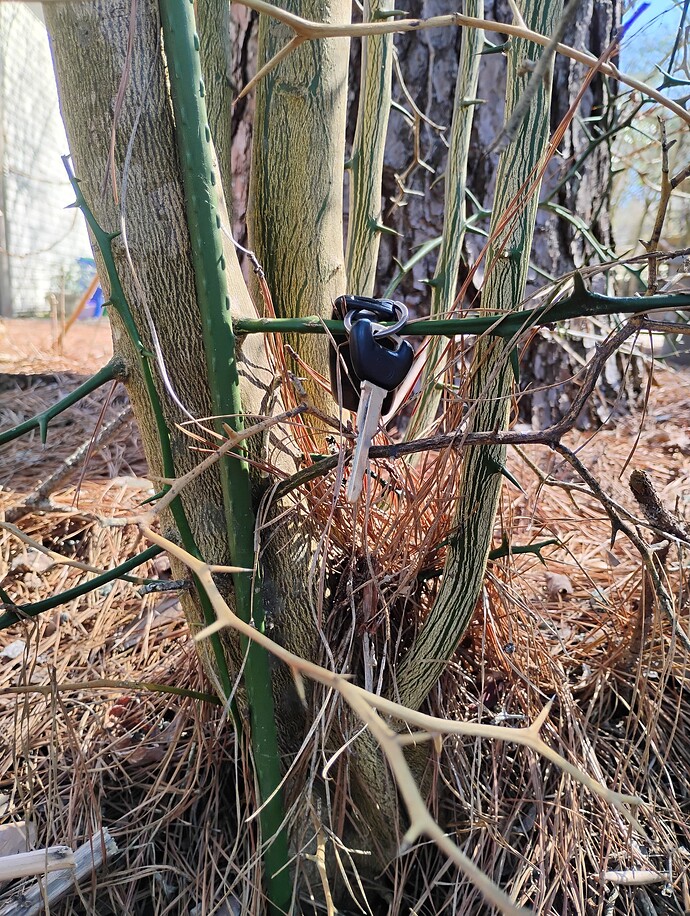@swincher, the next time you pop back in to the forum please take a look a little up-thread at what I found and posted in #78.
also yuja and other spellings. I don’t think any of these are made with the expensive Yuzu like used in Japanese products. I think that term is used generally, also called yuzu sometimes.
It tastes good, it is sour citrus, like a runny sour citrus marmelade with some honey. It does not taste like yuzu, but different, and better or more interesting than lemon. Its not that expensive, try it.
I definitely will go back and buy some to try. Like you offered, it was not expensive to purchase. I have got to get some yuzo and calamansi/calamondin trees growing for myself.
I lost two of my four young kumquat trees so I’m down to having only one variety growing. Over the last six months I have been scouting really hard and have found a significant quantity of trifoliate orange bushes growing not too far away. I discovered that a customer of ours has a 15 foot tall bush growing in her front yard
and I was able to get a large handful of sprouts from her in order to get rootstocks established at my property.
This is just a case of “lost in translation.” The Korean word for yuzu is 유자 (pronounced “yu-ja”) and is clearly written on the label. When putting it into English, someone accidentally combined “yu-zu” with “yu-ja” to produce “yuza.” Being a Korean product, it’s standard for stuff to get translated into English using more familiar words. Yuzu became “citron” in the same way that every green leafy Korean vegetable gets translated into “spinach.”
Have you ever tasted the poncirus+? Supposedly it’s a significant improvement over the regular poncirus. It’s hard to believe. I find the flying dragon fruit so disagreeable that I’d be shocked if the fruit of the poncirus+ is palatable.
Thank you, that is what I was reckoning might have occurred. I am also glad to hear confirmation that “yuzu” had simply become “yuza,” as I had figured that is what had happened.
I’ve got a decently large grafted branch of it that should bloom next year, so I should be able to provide a first-hand account eventually. In the meantime: https://youtu.be/Ub-snHkSb1U?si=8WXjvUkF9HFzyZtZ
In fairness, the guy who published this has a high tolerance of trifoliate off-flavors. But still, for whatever reason, poncirus+ lacks that bitter resin from normal trifoliate and so is much less unpleasant to eat.
Do you know it the poncirus+ comes in the flying dragon variety or is it only the standard tree? A seedling flying dragon that I planted back in 2020 is blooming for the first time this spring. I fully expect the fruit to be as bad as the other flying dragon. Though it is a gorgeous tree and I’m glad to have it for rootstock production. Plus I keep bee hives, and they don’t care if the citrus blooming is Meyer lemon, flying dragon or citrange.
Poncirus+ has a standard trifoliate growth form.
If it is indeed actually palatable that is a great thing for people in colder zones. Like he said on the video, even regular poncirus fruit has value to homesteader types Sure it tastes nasty, but it definitely has nutritional value during the imminent zombie apocalypse.
There really are only a handful of trifoliate hybrids that are palatable for the average person. The fact that some exist does give hope to those people where growing dessert citrus is a pipe dream.
I was passing by the same grocery store yesterday and stopped in to pick up that yuzu/yuja tea. Afterwards I strolled over to their tea aisle, looking for the large box of Wei-Chuan black tea that I cannot seem to find at any grocery store, and I discovered that they have other varieties of this marmalade-like tea concentrate to choose from.
Last night I tried the one that I had posted previously and it was delicious! Thank you to everyone who helped me decide to try it in spite of my citron vs. yuzu trepidation!






